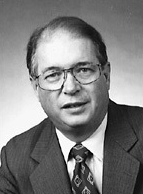The Histiocytosis Association, in conjunction with the Histiocyte Society, is offering an annual prize for the best clinical article at the Annual Meeting. It will be given in honor of Dr. Mark Nesbit, renowned pediatric oncologist, teacher, and supporter of the many families dealing with histiocytic disorders. The prize will be awarded to a physician or scientist who is carrying out clinical research to the therapy, biology or pathogenesis of one of the histiocytic disorders. The goal of the Award is to stimulate and promote the activities of clinical scientists from all around the world to study specific aspects of these puzzling diseases.
Dr. Mark Nesbit completed his medical training at George Washington Medical School in 1959. The remainder of his medical training was at the University of Minnesota where he specialized in pediatric hematology and oncology. In 1967 he joined the faculty at the University of Minnesota, achieving the rank of Professor of Pediatrics in 1973. Dr. Nesbit assumed the position of Director of the Division of Pediatric Hematology and Oncology at the University of Minnesota where he built one of the most productive and nationally recognized programs during his 14-year tenure. Professor Nesbit has been a leader in the development of clinical research for the treatment of leukemia and has a special interest in histiocytosis, bone tumors and the late complications of cancer survivors. In addition, Dr. Nesbit has helped countless young investigators with their careers in the field of pediatric hematology and oncology.
Of the contributions made by Professor Nesbit towards better understanding of the histiocytic disorders, we highlight the following three:
-
Histiocytic disorders have been a continual interest from the onset of Professor Nesbit's career. His first publication was entitled: "Histiocytosis X".
-
Dr. Nesbit played an important role in the organization of the Histiocyte Society. Besides his active input in the Epidemiology Study Group of the Histiocyte Society, he served on the Education Committee. His interest and initiative for increasing the activity and visibility of the Histiocyte Society has been an important part of the Society's evolution.
-
Dr. Nesbit has been an active member and participant as a Board of Trustees member of the Histiocytosis Association. His activities in the Association have made him a national source of information on the diagnosis and treatment of histiocytosis. In 1990, Professor Nesbit received the Outstanding Investigator Award from the Histiocytosis Association.
In conclusion, Dr. Nesbit has made substantial contributions to research in the field of histiocytosis. His dedication to the organization of interested investigators has resulted in a strong research agenda to better understand the etiology, diagnosis, treatment and long-term outcome of children with Langerhans cell histiocytosis. His compassion for patients and their families has always been evident, by his willingness to consult with both physicians and family members.
The Histiocytosis Association and the Histiocyte Society thought it entirely compatible with the support and the work of Dr. Nesbit within the world of the histiocytic disorders to offer this prize in his name. The candidates for this Award need not be physicians, but the focus of the work should be on some aspect of the histiocytic disorders, be it in clinical medicine, allied pursuits such as nursing, psychology, social work, occupational therapy, etc.
Judgment will be based on a written abstract describing work done by the candidate him/herself. It is understood that the winning abstract may have co-authors, but that the first author must be the major contributor who is awarded the Nesbit Award. The Program Committee will provide time during the Annual Meeting for presentation of the winning paper. The decision by a special committee of the Histiocyte Society will be based on scientific content, originality, relevance and organization of presentation. The prize will consist of $500 US Dollars and a certificate.
PREVIOUS RECIPIENTS
2024 Recipient
Joe Rocco, National Institutes of Health
for the abstract entitled:
PERSISTENT EXPANSION OF NOVEL HYPERACTIVATED T-CELL POPULATIONS CHARACTERIZES IMMUNE EFFECTOR CELL-ASSOCIATED HLH-LIKE SYNDROME AND DIFFERENTIATES IT FROM SECONDARY HLH
2023 Recipient
Eli Diamond, Memorial Sloan Kettering Cancer Center
for the abstract entitled:
INTRA-ARTERIAL MELPHALAN FOR HISTIOCYTIC NEOPLASMS INVOLVING NEUROLOGIC, OCULAR, AND HEAD AND NECK STRUCTURES
2022 Recipient
AnnaCarin Horne, Astrid Lindgren Children's Hospital, Karolinska University Hospital
for the abstract entitled:
LATE EFFECTS AFTER HEMATOPOETIC CELL TRANSPLANTATION IN PATIENTS WITH HEMOPHAGOCYTIC LYMPHOHISTIOCYTOSIS: A HISTIOCYTE SOCIETY AND PEDIATRIC DISEASE
2021 Recipient
Dmitry Evseev, Dmitry Rogachev National Research Center of Ped Hem
for the abstract entitled:
THE INTERIM RESULTS OF A MULTICENTER STUDY OF SAFETY AND EFFICACY OF VEMURAFENIB AND CYTARBINE PLUS CLADRIBINE THERAPY IN HIGH-RISK PEDIATRIC LANGERHANS CELL HISTIOCYTOSIS WITH BRAF V600E MUTATION
2019 Recipient
Paul Kemps, Leiden University Medical Center
for the abstract entitled:
THE TYPE OF ONCOGENIC BRAF MUTATION MATTERS: BRAF EXON 12 DELETIONS ARE ASSOCIATED WITH SUPERIOR EVENT-FREE SURVIVAL COMPARED TO BRAFV600E IN PEDIATRIC LCH

.png)

